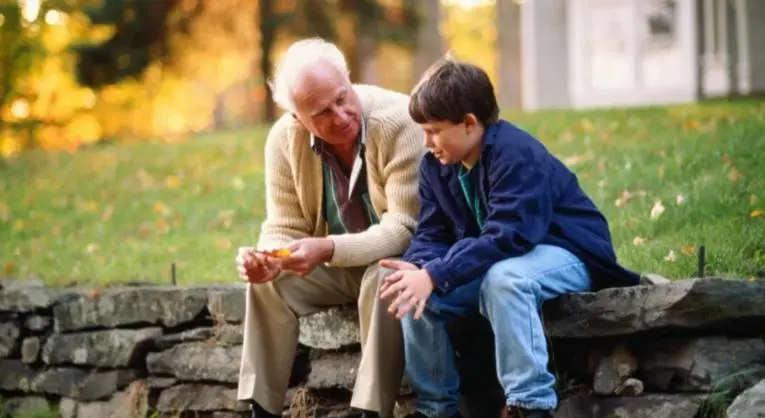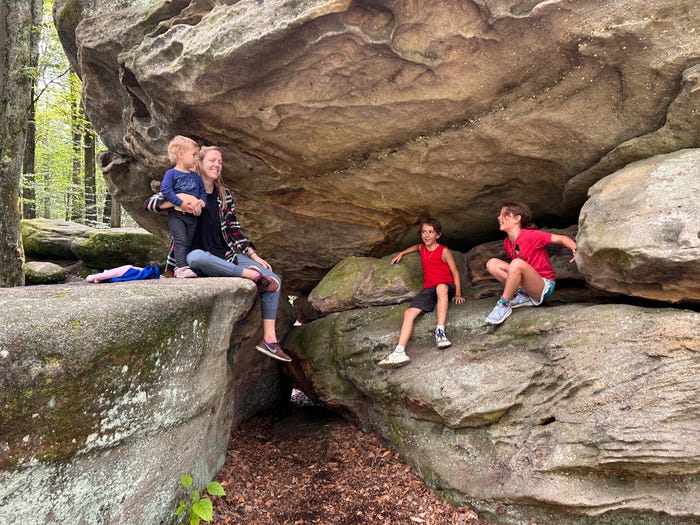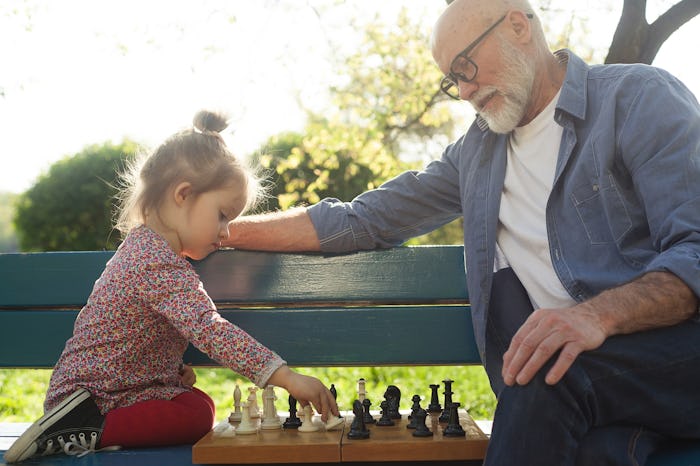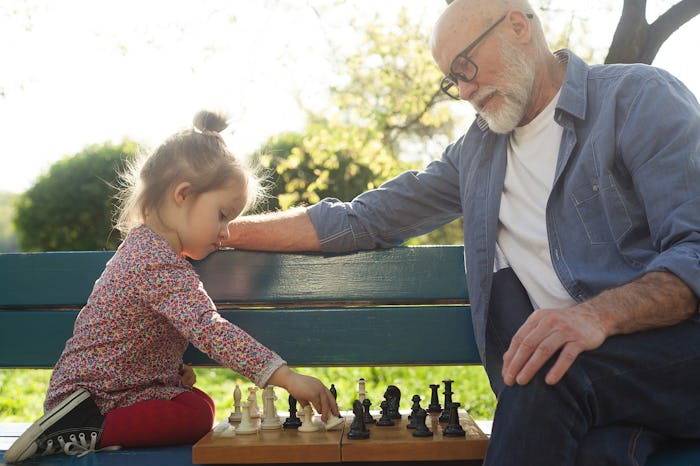At Remin.site, we believe that memories and legacies are meant to be lived, not forgotten. But what happens when a child grows up without the living memory and emotional presence of a grandparent? The psychological effects of growing up without grandparents run deep, often shaping a child’s emotional foundation, identity, and understanding of family. In a world that moves fast and fragments easily, the absence of these intergenerational bonds can leave silent but lasting gaps.

Introduction: The Role of Grandparents in Childhood Development
Grandparents are more than just extended family members. They are keepers of history, tradition, and emotional wisdom. For many children, they are the storytellers, the comforters, the patient listeners who shape how love, kindness, and resilience are understood. Their role isn’t just nostalgic—it’s developmental.
According to the British Psychological Society, “intergenerational relationships contribute significantly to children’s mental health, offering emotional support and improving self-esteem.” When this presence is missing, a child may grow up with subtle emotional gaps that are often misunderstood or overlooked.
Grandparents as Emotional Anchors
In many families, grandparents provide a unique kind of security—a safe harbor in times of stress. They often have the time, patience, and perspective to offer unconditional presence. This emotional grounding helps children regulate feelings, navigate conflict, and develop a sense of belonging beyond the immediate nuclear family.
“A grandparent is a little bit parent, a little bit teacher, and a little bit best friend.”
Attachment Theory and Grandparental Roles
According to attachment theory, children build internal models of safety, love, and connection based on the relationships they form early in life. Grandparents, especially in multigenerational households, often serve as secondary attachment figures. Their consistency and affection reinforce trust and emotional security. Without them, children may lean heavily on overstretched parents or remain emotionally self-reliant, which can later manifest as difficulty in forming close relationships.
Key Psychological Effects of Growing Up Without Grandparents
Lack of Emotional Security and Social Identity
Without a grandparent’s gentle guidance or storytelling, a child may struggle to anchor their identity within the broader family lineage. There’s often a subtle but significant loss of emotional security. Children may find it harder to grasp where they come from—both literally and metaphorically.
This absence can lead to:
- Weaker family narratives and values
- Increased reliance on peer influence over family grounding
- Emotional disconnection from older generations
Absence of Cultural Continuity and Wisdom Transfer
Grandparents are culture bearers. Through holiday traditions, rituals, and stories of past generations, they pass on cultural identity and values. In their absence, children may grow up with fragmented knowledge of their roots.
A Harvard study found that children who spend time with grandparents show better cognitive development and a richer understanding of family heritage. These children often demonstrate stronger resilience, deeper empathy, and higher emotional literacy.
Reduced Support Systems in Times of Family Stress

Family stress is inevitable. In times of divorce, illness, or financial hardship, grandparents often step in to provide stability and love. Without them, parents may feel overwhelmed and unsupported, while children may silently shoulder anxiety or confusion.
In these circumstances, grandparents often serve as:
- Reliable caregivers
- Mediators during conflict
- Protective buffers against household instability
The Importance of Intergenerational Bonding in Mental Health
Cognitive Benefits and Emotional Maturity via Grandparental Interactions
Children exposed to the calm, seasoned presence of grandparents often show greater emotional maturity. They learn by example—patience, humility, forgiveness. These are traits not always modeled in fast-paced, digital-age parenting. The gentle pace of grandparental storytelling and attention becomes a mirror for introspection and regulation.
Social Learning Through Storytelling and Rituals
Storytelling is more than bedtime amusement—it’s a powerful tool for social learning. Grandparents pass on lessons that parents may not have time to teach. From tales of survival to cultural fables, children absorb values, moral lessons, and a sense of legacy.
These ritualistic exchanges promote:
- Stronger self-concept and identity
- Development of empathy through narrative understanding
- Connection to ancestral heritage

Modern Factors Contributing to Grandparent Absence
Geographic Distance and Migration
In today’s mobile world, families are spread across cities, states, and even continents. Work, education, and economic opportunity often come at the cost of proximity to grandparents. As a result, children miss out on regular, spontaneous interaction with older relatives—limiting the frequency and depth of those formative relationships.
Estrangement and Family Conflicts
Sometimes, absence isn’t physical but emotional. Family rifts, unresolved trauma, or generational misunderstandings can create long-term estrangement between grandparents and their adult children—blocking access for the next generation entirely. The child, in this case, becomes the silent casualty of broken generational ties.

Up next: Can other figures step in to fill this gap? And how can we, as a community, preserve the wisdom of our elders when presence isn’t possible? Continue reading the second half of this article as we explore how to rebuild intergenerational bridges—for the sake of every child’s memory and mind.
Can Other Figures Fill the Grandparental Gap?
While the absence of grandparents can leave a lasting emotional mark, children are incredibly resilient. They adapt, seek connection, and build meaning in other places. The key is ensuring that the emotional void is acknowledged and intentionally filled with nurturing alternatives.
Role of Teachers, Mentors, and Elder Friends
In the absence of grandparents, children often gravitate toward teachers, neighbors, or mentors who offer consistent care and wisdom. These figures may not share DNA, but they can offer the same emotional grounding and guidance that grandparents provide.
Consider:
- Long-term relationships with family friends or neighbors
- Teachers who take an active role in a child’s emotional development
- Faith-based community elders or youth mentors
Programs that support cross-generational mentorship can offer profound psychological benefits. Check out initiatives from Generations United, which foster meaningful bonds between young people and older adults in the community.
Structured Programs for Intergenerational Engagement
From “Adopt-a-Grandparent” movements to school programs that pair students with senior citizens, there are many creative ways to reintroduce intergenerational bonds. These structured experiences allow children to benefit from the wisdom, patience, and perspective of elders—even if they’re not blood relatives.
Examples of intergenerational programs include:
- Pen pal exchanges with retirement communities
- Intergenerational storytelling workshops
- Local library heritage clubs and oral history projects
“When a child connects with an elder, time folds. The past meets the future in the form of presence.”
Long-Term Implications and Coping Strategies
Building Emotional Resilience in Children
The absence of grandparents can be a silent stressor—but it also presents an opportunity to build emotional resilience. With the right tools and support, children can develop a strong internal compass, rooted in self-worth and emotional intelligence.
Resilience-building techniques include:
- Encouraging expression through journaling, drawing, or voice messages (a feature offered on Remin.site)
- Open discussions about family history, even when grandparents aren’t present
- Practicing gratitude for other caring figures in the child’s life
Therapy, Open Dialogue, and Family Reconnection
Sometimes, reconnection is possible. When safe and healthy, bridging the emotional distance with grandparents can offer deep healing for both generations. Therapy—whether for children, parents, or grandparents—can open space for understanding and repair.
Even when reconnection isn’t an option, therapy helps children name their grief and process their emotions. At Remin.site, we offer families tools to record and preserve memories—ensuring that love and legacy aren’t lost, even when relationships are complicated.
Conclusion: Rethinking the Grandparent’s Role in Today’s Society
In an age of digital connection and physical disconnection, we must rethink how we preserve the presence of elders in children’s lives. The psychological effects of growing up without grandparents are real—but so are the solutions.
Whether it’s through mentors, community programs, or recorded memories passed on through platforms like Remin.site, the influence of our elders doesn’t have to disappear. Their stories can still be told. Their love can still be felt. And their wisdom can still guide the next generation—even across time and space.
Final Thoughts
“Death is not the end. It is the beginning.” — Remin.site
At Remin.site, we believe in creating bridges across generations. Let us help you preserve the voice of a grandparent, the smile of a child, and the heartbeat of a family. Your memories are not lost. They are waiting to be remembered.
FAQs
What can replace the role of a grandparent?
While nothing truly replaces a grandparent’s presence, children can benefit immensely from consistent, loving relationships with mentors, teachers, or elder family friends. Structured programs like Generations United also foster meaningful intergenerational bonds.
How does the absence affect teenagers specifically?
Teenagers often struggle with identity, purpose, and belonging. Without grandparents, they may miss out on wisdom, cultural grounding, and emotional safety that helps them navigate this complex phase of life. It’s crucial to create alternative spaces for connection and reflection.
Can technology help bridge the gap?
Absolutely. Platforms like Remin.site allow families to preserve stories, messages, and memories digitally, ensuring that even when physical presence is impossible, emotional connection remains intact across generations.
How can I talk to my child about an absent grandparent?
Use age-appropriate language, validate their emotions, and share stories about the grandparent—even if they are no longer in your lives. If possible, encourage children to express themselves creatively by writing letters, drawing, or recording memories, even if those messages go unanswered.
To explore tools for preserving family memories and passing them on to future generations, visit Remin.site.
